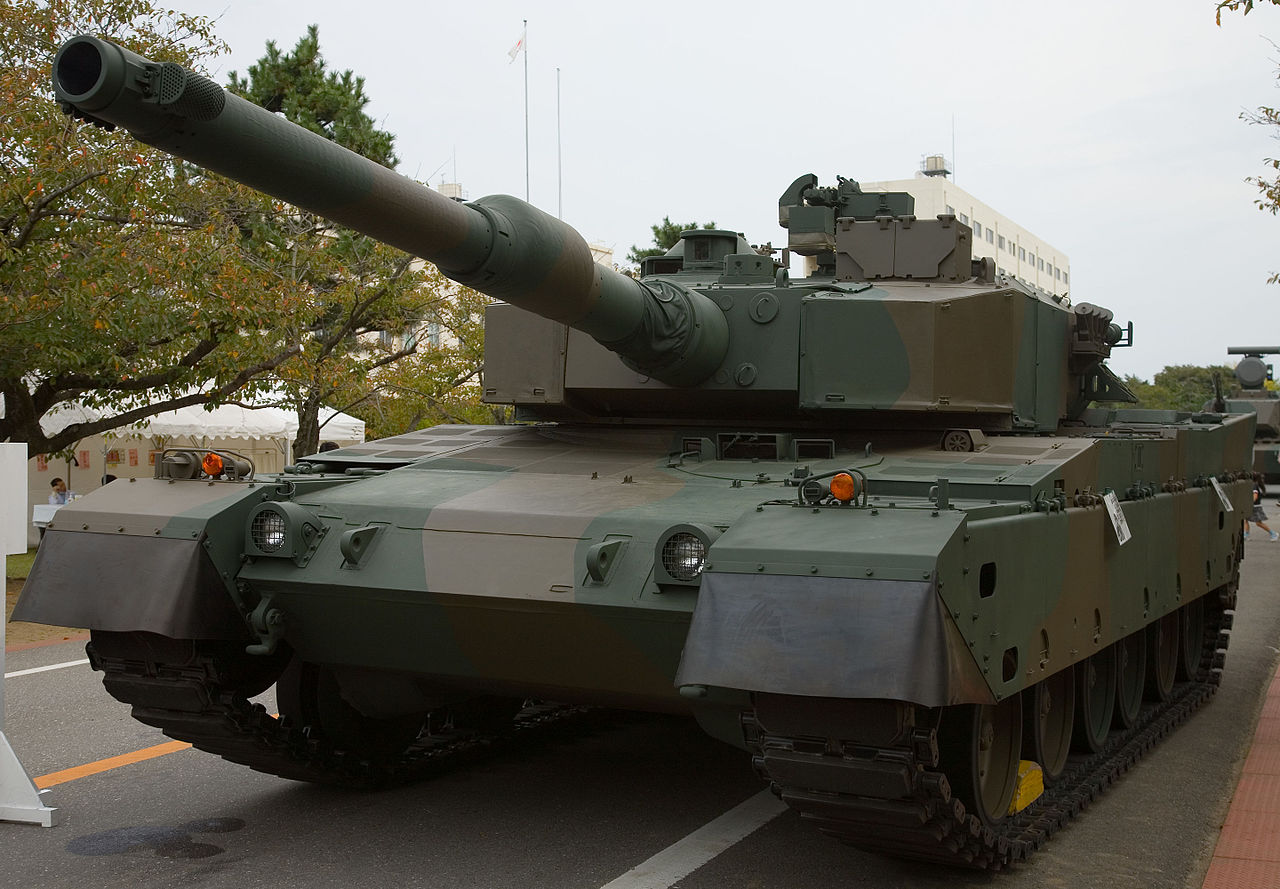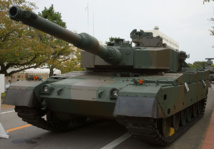Very few citizens of this country have personally seen pistols and machine guns because of the rigid rules governing the carrying and use of weapons in Japan. In October 2014, a 28-year-old Japanese man was sentenced to two years in prison for the production of two pistols using home 3D printer. The policy of pacifism has been operating in Japan for more than half a century - from 1960, Japan refused to supply arms abroad. However, the Prime Minister Shinzo Abe, known for his conservative and nationalist views, relaxed restrictions on exports of weapons about a year ago.
The first international exhibition of arms MAST Asia, opened in Yokohama on Wednesday, May 13, was evidence of this historic step. In June 2014, three dozen Japanese companies have already demonstrated their products at Eurosatory - the exhibition of arms and military equipment in France - among other things, there were represented armored vehicles, mine-sweeping equipment and communication systems. However, MAST Asia is the first export-oriented exhibition of Japanese arms - even if its main result are not entering into contracts for the supply of weapons, but the amplification of contacts.
The organizer of the Yokohama exhibition was Warren Edge - MAST Communications’s employee, for many years engaged in holding exhibitions on navigation and safety at sea. MAST Asia is attended by representatives of the Australian, French, German, Malaysian, Norwegian, Filipino, British and American companies, as well as two leading Japanese manufacturer of weapons - Mitsubishi Heavy Industries and Kawasaki Heavy Industries. Among other things, the program of the event includes the speech of the former Minister of Defense Satoshi Morimoto, and visiting the US Navy warship and naval base of the Japanese fleet.
In 2014, Japan renounced the pacifist policy pursued by more than half a century. In 1967, Japan had decided not to supply arms to communist and banned by UN embargo countries, as well as in areas of armed conflict. And in 1976, referring to the post-war pacifist constitution, the government announced the total elimination of arms exports.
Under the new rules adopted by the Cabinet of Shinzo Abe, the overseas supply of weapons is no longer prohibited if it "contributes to the establishment of global peace and serve the interests of the security of Japan." In December 2014 a panel of experts set to work at the Ministry of Defense, which is to develop the basic principles of the new policy of arms.
Easing of restrictions on arms exports - one of the tools of Japanese foreign policy. In this way, Prime Minister Shinzo Abe plans to strengthen the position and increase the influence of Tokyo on the world political arena - first of all, compared with China. Deliveries of arms to help countries such as the Philippines and Indonesia, to provide more effective protection of sea lanes crucial for Japan. Change of Japanese policy was subjected to harsh criticism from the Chinese government, after which the Chinese visitors were not invited to the Yokohama exhibition. This was done with an eye to the feelings of the owners of the exhibition, said the organizer of the event, Warren Edge.
Abe's government explains the easing of the export restrictions by economic reasons. Increasing the number of produced weapons would lower the cost of its production, thereby reducing defense spending. However, experts believe that Japan is just dreaming. The world market of weapons has been in a state of regression for many years, and the competition is very high. For example, a strong rival is South Korea, which since 2010 has increased the volume of arms exports by almost a third to the level of 3.6 billion dollars (3.17 billion euros). From this, it follows that niche that Japanese weapons can take, is extremely small.
source: dw.de
The first international exhibition of arms MAST Asia, opened in Yokohama on Wednesday, May 13, was evidence of this historic step. In June 2014, three dozen Japanese companies have already demonstrated their products at Eurosatory - the exhibition of arms and military equipment in France - among other things, there were represented armored vehicles, mine-sweeping equipment and communication systems. However, MAST Asia is the first export-oriented exhibition of Japanese arms - even if its main result are not entering into contracts for the supply of weapons, but the amplification of contacts.
The organizer of the Yokohama exhibition was Warren Edge - MAST Communications’s employee, for many years engaged in holding exhibitions on navigation and safety at sea. MAST Asia is attended by representatives of the Australian, French, German, Malaysian, Norwegian, Filipino, British and American companies, as well as two leading Japanese manufacturer of weapons - Mitsubishi Heavy Industries and Kawasaki Heavy Industries. Among other things, the program of the event includes the speech of the former Minister of Defense Satoshi Morimoto, and visiting the US Navy warship and naval base of the Japanese fleet.
In 2014, Japan renounced the pacifist policy pursued by more than half a century. In 1967, Japan had decided not to supply arms to communist and banned by UN embargo countries, as well as in areas of armed conflict. And in 1976, referring to the post-war pacifist constitution, the government announced the total elimination of arms exports.
Under the new rules adopted by the Cabinet of Shinzo Abe, the overseas supply of weapons is no longer prohibited if it "contributes to the establishment of global peace and serve the interests of the security of Japan." In December 2014 a panel of experts set to work at the Ministry of Defense, which is to develop the basic principles of the new policy of arms.
Easing of restrictions on arms exports - one of the tools of Japanese foreign policy. In this way, Prime Minister Shinzo Abe plans to strengthen the position and increase the influence of Tokyo on the world political arena - first of all, compared with China. Deliveries of arms to help countries such as the Philippines and Indonesia, to provide more effective protection of sea lanes crucial for Japan. Change of Japanese policy was subjected to harsh criticism from the Chinese government, after which the Chinese visitors were not invited to the Yokohama exhibition. This was done with an eye to the feelings of the owners of the exhibition, said the organizer of the event, Warren Edge.
Abe's government explains the easing of the export restrictions by economic reasons. Increasing the number of produced weapons would lower the cost of its production, thereby reducing defense spending. However, experts believe that Japan is just dreaming. The world market of weapons has been in a state of regression for many years, and the competition is very high. For example, a strong rival is South Korea, which since 2010 has increased the volume of arms exports by almost a third to the level of 3.6 billion dollars (3.17 billion euros). From this, it follows that niche that Japanese weapons can take, is extremely small.
source: dw.de



















